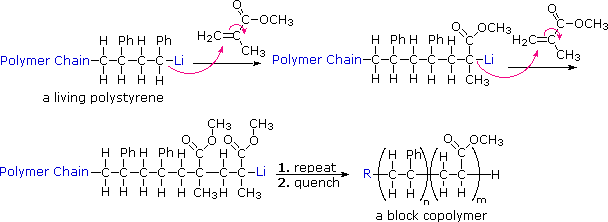Sustainable Polymers: Eco-Friendly Solutions for the Future
Sustainable Polymers: Eco-Friendly Solutions for the Future
Blog Article
Discovering the Varied Applications and Benefits of Polymers in Different Industries
Polymers, with their diverse array of properties and capabilities, have ended up being vital in various industries, each enjoying unique benefits from their application. From enhancing safety and performance in the automotive industry to revolutionizing medical devices in the healthcare sector, polymers play a crucial role.
Automotive Industry Applications
Polymers play a pivotal duty in boosting the performance and longevity of different components within the automotive industry. These versatile materials are thoroughly used in the manufacturing of different parts, varying from indoor components to under-the-hood applications. One prominent use polymers in the vehicle market is in the production of lightweight components. By changing standard metal components with polymer-based alternatives, lorries can attain better fuel efficiency without jeopardizing on toughness or security.

Health Care Market Benefits
In numerous healthcare applications, the advantages of making use of polymers are extensively recognized for their varied series of valuable residential or commercial properties. Polymers play a critical role in the medical care industry due to their convenience, biocompatibility, and cost-effectiveness. One of the primary benefits of polymers in health care is their ability to be customized to particular requirements, such as adaptability, longevity, and biodegradability, making them ideal for a large range of clinical applications.
Polymer-based products are extensively made use of in medical devices, such as catheters, implants, prosthetics, and medication delivery systems, as a result of their biocompatibility and capability to mimic natural tissues. These materials can decrease the risk of allergic reactions or beings rejected, boosting patient security and results. In addition, polymers are light-weight, making them ideal for wearable medical devices and ensuring patient convenience.
Moreover, polymers make it possible for the development of innovative treatment approaches, such as hydrogels for cells design and nanocomposites for targeted medicine distribution. Their convenience of handling and sterilization makes them essential for keeping high requirements of health in health care setups. Overall, the varied benefits of polymers contribute substantially to advancements in medical modern technology and patient treatment.
Ecological Benefits of Polymers

Additionally, polymers can add to power financial savings because of their lightweight nature. In markets such as transport, light-weight polymer products can help decrease fuel consumption and greenhouse gas discharges. Furthermore, polymers can allow the advancement of energy-efficient items such as insulation materials that enhance energy conservation in buildings.
Additionally, polymers play a critical role in reducing water pollution. For example, using polymer-based filtering systems can efficiently eliminate contaminants and pollutants from wastewater, securing water sources and ecosystems. On the whole, the ecological advantages of polymers make them beneficial properties in advertising sustainability and environmentally friendly methods across numerous sectors.
Polymers in Electronic Devices and Innovation
Considering the increasing need for ingenious and sustainable solutions in modern industries, the integration of advanced polymer modern technologies in the realm of electronics and modern technology has actually become a crucial approach for driving effectiveness and performance. Polymers this article have changed the electronic devices market by making it possible for the manufacturing of lighter, more adaptable, and long lasting electronic devices. From smart devices to clinical devices, polymers play an important role in enhancing item style and functionality.
One significant advantage of polymers in electronic devices is their protecting homes, which help safeguard fragile electronic parts from environmental aspects and electrical disturbance. Additionally, polymers are crucial in the development of versatile displays, wearable innovation, and published electronics, offering limitless possibilities for producing smart and interconnected tools.
Moreover, using polymers in digital product packaging has actually led to developments in miniaturization and thermal administration, improving the total performance and reliability of electronic systems. As technology proceeds to evolve, the versatility and adaptability of polymers will unquestionably drive additionally innovation in the electronic devices industry, forming the future of technology.
Function of Polymers in Building And Construction and Infrastructure
The integration of advanced polymer materials in construction and infrastructure projects has transformed the method structures are browse around this site developed and integrated in contemporary times. Polymers use many advantages in the building market because of their adaptability, longevity, and cost-effectiveness. One vital duty of polymers in building and construction is their usage in layers and sealers, giving defense versus ecological elements such as dampness, UV radiation, and deterioration. Furthermore, polymers are used in the manufacturing of light-weight and high-strength composite products, improving the structural honesty of structures while minimizing general weight.
Additionally, polymers play an important duty in sustainable building techniques by making it possible for the development of energy-efficient structures. Protecting products made from polymers aid regulate indoor temperatures, minimizing the demand for home heating and cooling down systems and ultimately lowering power intake - Polymers.
Conclusion
In verdict, polymers play a crucial duty in numerous sectors such as auto, medical care, ecological, electronic devices, and building. From improving fuel efficiency in cars to enhancing medical gadgets, polymers use many advantages.
Report this page